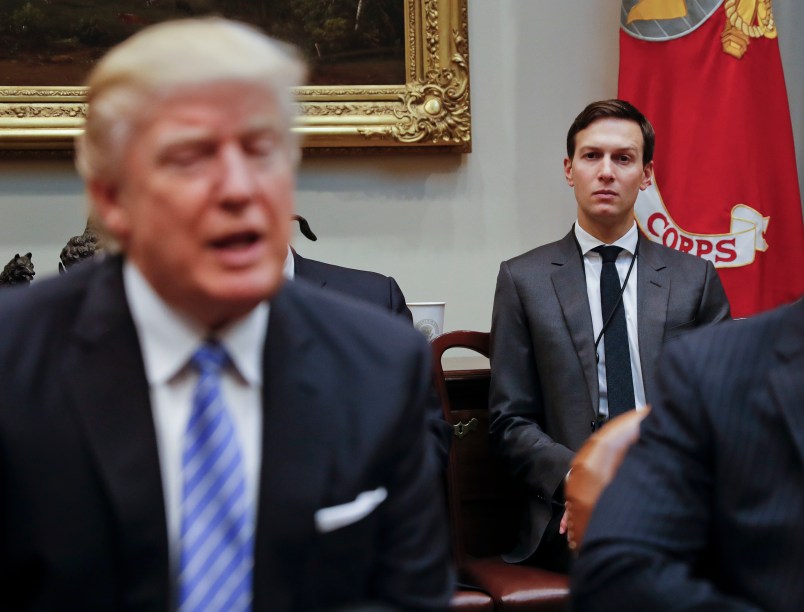For the last few hours I was writing the post below and then on the phone about something not news related. Then I went online and saw this stunning piece from the Post about Jared Kushner. It has frankly taken me a while to absorb what it means and I’m still trying to.
Put simply, in secret meetings in December, Jared Kushner proposed to Russian Ambassador Sergei Kislyak setting up a “back channel” so the Trump team could communicate secretly and securely with Moscow. But this use of the phrase “back channel” does a serious disservice to back channels. A back channel is secret and unofficial communication through trust intermediaries that goes around the national security and diplomatic bureaucracy and provides some plausible deniability. Kushner proposed using the Russian government’s own secure communication facilities, presumably housed in Russian diplomatic facilities in Washington and New York, to communicate with Moscow behind the back of the US government, state, intelligence apparatus, military, etc.
Why exactly would you want to do that?
Here are key passages from the Post.
Jared Kushner and Russia’s ambassador to Washington discussed the possibility of setting up a secret and secure communications channel between Trump’s transition team and the Kremlin, using Russian diplomatic facilities in an apparent move to shield their pre-inauguration discussions from monitoring, according to U.S. officials briefed on intelligence reports.
Ambassador Sergey Kislyak reported to his superiors in Moscow that Kushner, son-in-law and confidant to then-President-elect Trump, made the proposal during a meeting on Dec. 1 or 2 at Trump Tower, according to intercepts of Russian communications that were reviewed by U.S. officials. Kislyak said Kushner suggested using Russian diplomatic facilities in the United States for the communications.
The meeting also was attended by Michael Flynn, Trump’s first national security adviser.
…
Kislyak reportedly was taken aback by the suggestion of allowing an American to use Russian communications gear at its embassy or consulate — a proposal that would have carried security risks for Moscow as well as the Trump team.
This is truly extraordinary. As the Post notes, even Kislyak seems to have found it shocking, not least because under normal or even abnormal circumstances the Russians (or any other government) would never let the US government see or have any contact with these facilities and hardware.
Frankly, I’m still forming my opinions about what this means. But it makes all the most ominous reads about what is at the heart of Trump/Russia story considerably more plausible. What exactly did the Trump team need so urgently to discuss with the Russian government? Why the need for such absolute security? After all the transition would be the US government in little more than a month.






